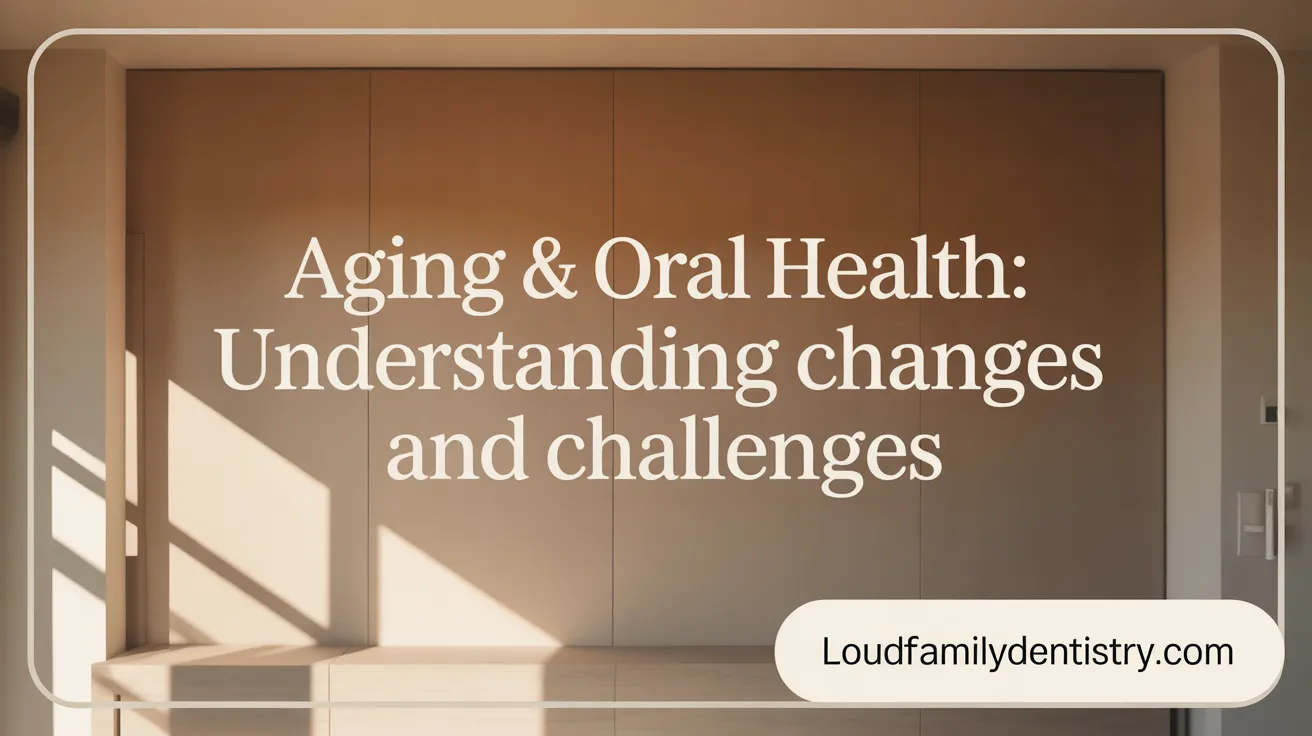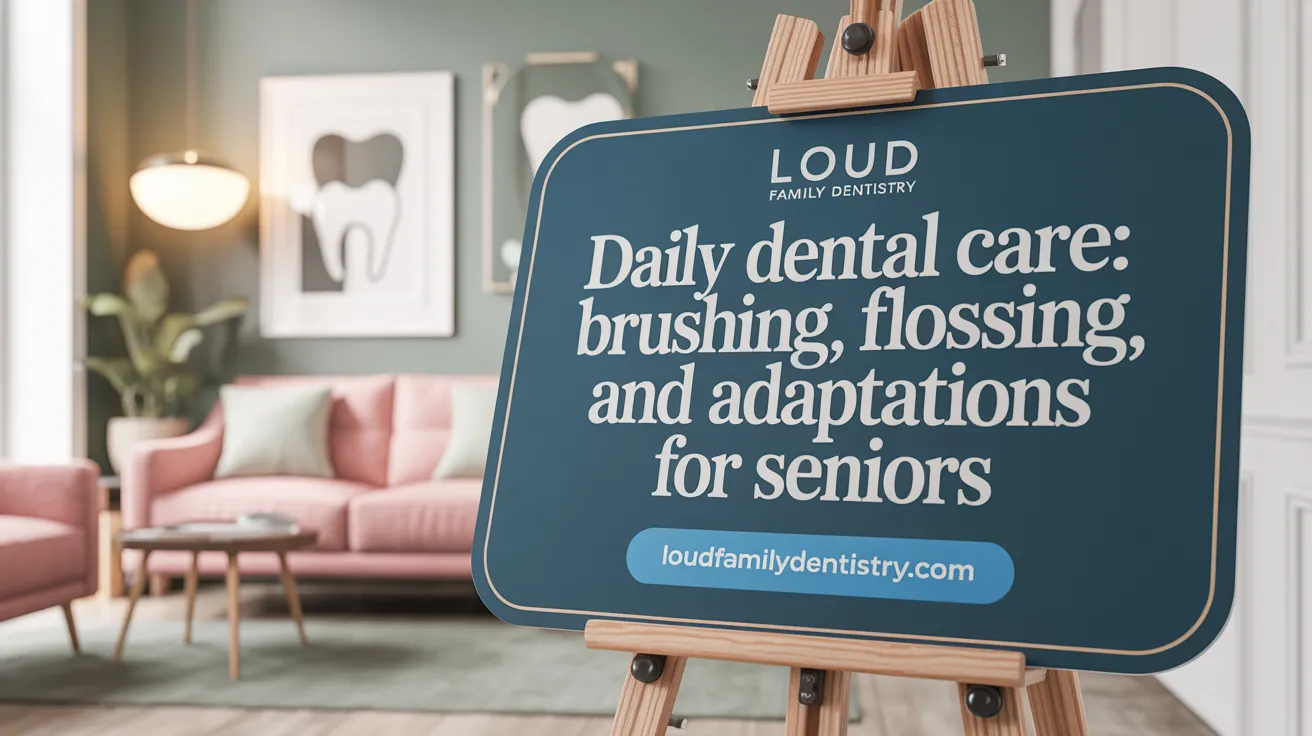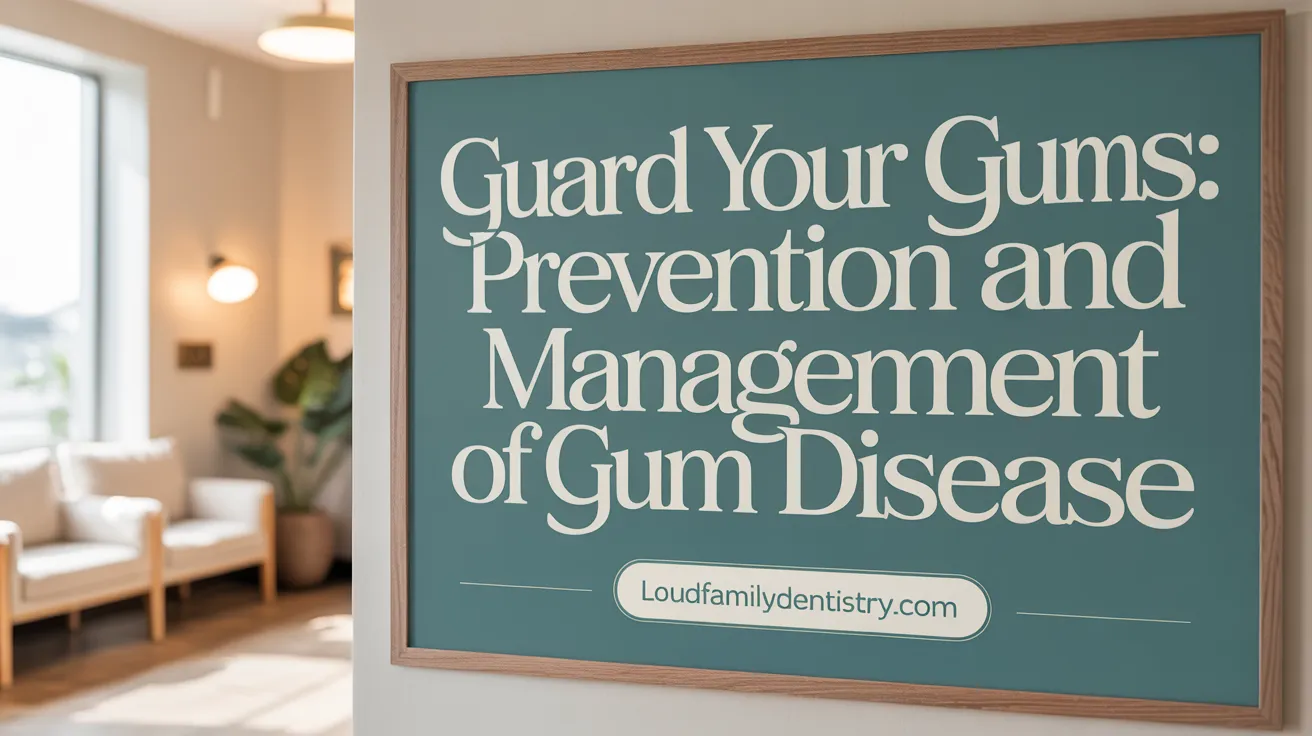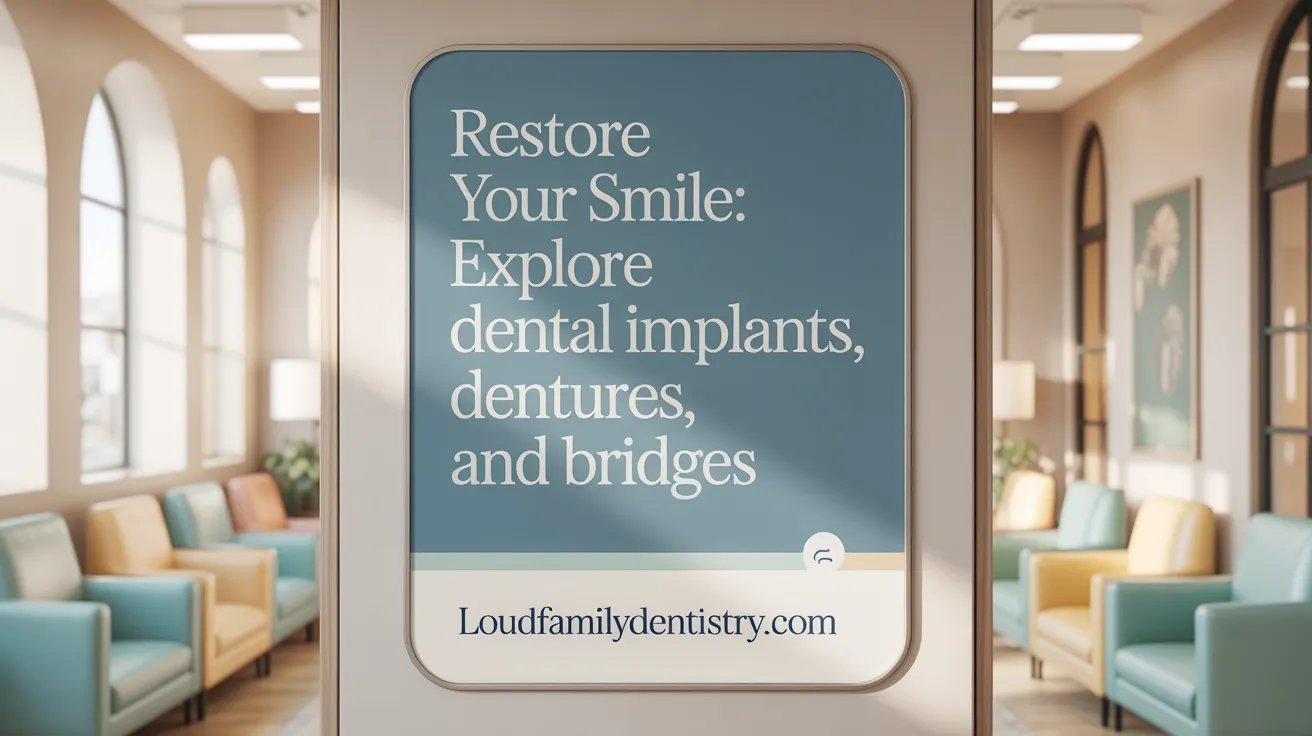Why Senior Dental Care Matters
As the population ages, maintaining good oral health becomes increasingly important to ensure overall well-being, nutrition, and quality of life among seniors. Preventing dental problems in seniors involves understanding age-related changes affecting teeth and gums, managing chronic conditions, and adopting daily care practices tailored to individual needs. This article outlines essential tips and tricks for seniors to maintain healthy teeth and gums and to prevent common dental issues such as tooth decay, gum disease, dry mouth, and oral cancer.
Understanding Age-Related Changes Impacting Senior Oral Health

What are the common dental health challenges faced by seniors due to aging?
As people age, their oral health faces several physiological changes that increase vulnerability to dental problems. Seniors often experience the loss of tooth enamel and gum recession. The gums shrink back, exposing the tooth roots which lack protective enamel, making them more susceptible to decay and infection (Aging and dental health).
Dry mouth, medically known as xerostomia, is a prevalent issue in older adults. It is most commonly caused by medications, such as antihypertensives and antidepressants, or health conditions like diabetes. Around 30% of adults over 65 and up to 40% over 80 experience dry mouth, which significantly raises the risk of cavities and mouth infections (Managing dry mouth in older adults, Aging and dental health.
Gum disease is another major concern. Both gingivitis (gum inflammation) and periodontitis (advanced gum and bone disease) are widespread, with nearly 64% of older adults in the U.S. suffering from moderate to severe periodontitis. These diseases contribute to inflammation, gum recession, bone loss, and eventual tooth loss if untreated (Gum disease and prevention, Gum disease prevalence in older adults).
Additionally, seniors face a higher risk of oral cancer, especially those over 40, correlating with tobacco use, alcohol consumption, and HPV infection (Recognizing symptoms of oral cancer, Oral cancer risk factors).
Chronic diseases commonly found in older adults, including hypertension, diabetes, arthritis, and heart disease, also impact oral health. These conditions, along with the multiple medications often prescribed (polypharmacy), complicate dental care—contributing to dry mouth and affecting oral tissue health (Oral health and chronic conditions, Polypharmacy and oral health.
Addressing these challenges requires consistent oral hygiene (Daily oral hygiene for seniors), regular dental visits tailored for older adults (Regular dental checkups and cleanings), and awareness of medication side effects to maintain healthy teeth and gums in senior years.
Daily Oral Hygiene Practices for Seniors

What daily oral care routines are recommended for seniors?
Seniors are advised to brush their teeth twice a day, dedicating at least two minutes each session. Using a soft-bristled toothbrush and fluoride toothpaste is crucial to gently remove plaque and protect enamel. The brushing technique should involve gentle circular motions and careful cleaning along the gum line to prevent irritation and gum disease.
Daily flossing is equally important. This can be done with traditional dental floss or alternative interdental cleaners like water flossers or interdental brushes, especially for those who find flossing difficult. These practices help remove plaque in tight spaces between teeth, reducing the risk of cavities and gum infections.
For seniors facing physical challenges such as arthritis or limited hand mobility, adaptations can support effective oral care. Electric toothbrushes with larger handles or modified grips make brushing easier. Floss holders and interdental brushes with ergonomic designs help with cleaning between teeth, ensuring that oral hygiene remains thorough despite physical limitations.
Consistent daily oral hygiene routines not only maintain dental health but also support overall well-being by preventing infections linked to systemic conditions common in older adults.
Managing Dry Mouth to Protect Oral Health

Causes and effects of dry mouth in seniors
Dry mouth, medically known as xerostomia, is common among older adults and often results from the use of certain medications or chronic health conditions like diabetes and Sjögren’s syndrome. Saliva plays a crucial role in maintaining oral health by neutralizing acids, washing away food particles, and providing antimicrobial properties. Reduced saliva production increases the risk of cavities, gum disease, mucositis, and oral fungal infections. Learn more about aging and dental health and managing dry mouth in older adults.
Strategies to alleviate dry mouth
Seniors can manage dry mouth effectively by adopting several simple strategies. Regularly sipping water throughout the day helps keep the mouth moist. Chewing sugar-free gum or candies containing xylitol can stimulate saliva production. It is important to avoid alcohol and tobacco products as they can exacerbate dryness. Using alcohol-free mouth rinses and products designed to mimic natural saliva can provide additional relief. For detailed guidance, see managing dry mouth symptoms and oral health tips for older adults.
Role of hydration and saliva substitutes
Proper hydration is vital in combating dry mouth symptoms. Drinking enough water helps maintain saliva flow and oral comfort. When natural saliva is insufficient, artificial saliva products can be used to lubricate the mouth, making eating, swallowing, and speaking easier. Humidifiers may also be beneficial to increase air moisture, which can help alleviate dryness. Additional information on dry mouth management and the caregiver's guide to dental health can provide further support.
Dental risks associated with xerostomia
Xerostomia significantly raises the likelihood of dental problems such as increased tooth decay, root caries due to exposed roots from receding gums, and gum infections. The lack of saliva diminishes the mouth’s ability to fight bacteria, leading to faster plaque buildup and inflammation. Mucosal irritation and cracked lips are also common complications. See oral health issues in the elderly and aging and dental health for more on this subject.
How can seniors manage dry mouth to prevent dental problems?
Dry mouth often caused by medications or chronic health conditions reduces saliva essential for tooth and gum protection. Management includes staying hydrated by sipping water, stimulating saliva with sugar-free gum or xylitol candies, avoiding alcohol and tobacco, and using alcohol-free mouth rinses or artificial saliva. Consulting healthcare providers regarding medication side effects is advisable. Proper management reduces risks of tooth decay, gum disease, mucositis, and infections, preserving oral health. For comprehensive tips, visit oral health tips for older adults and taking care of your teeth and mouth.
Regular Dental Visits and Professional Care
Why are regular dental visits important for seniors and how often should they occur?
Regular dental visits are crucial for seniors as they facilitate early detection of oral health issues such as cavities, gum disease, and oral cancer, all of which have increased occurrence in older adults. During these visits, professional dental cleanings are performed to remove plaque and tartar in areas that daily brushing and flossing might miss. This helps prevent infections and maintains overall oral health.
The typical recommendation is to schedule dental checkups every six months. However, the frequency of visits should be personalized based on the individual's specific oral health condition and risk factors, which means some seniors may need more frequent appointments.
Since Medicare usually does not cover dental care, seniors often face challenges accessing affordable dental services. To overcome this, it is advisable to consider private dental insurance plans or seek alternative low-cost care options available through community health clinics, dental and hygiene schools, and local health department programs. These options can provide necessary preventive care and treatment while managing out-of-pocket costs effectively.
Maintaining regular dental visits ensures that seniors can address oral health issues proactively, improving quality of life and overall health.
Nutrition and Lifestyle Habits for Oral Health
What dietary and lifestyle habits support oral health in seniors?
Maintaining oral health in seniors greatly depends on adopting supportive dietary and lifestyle habits. A balanced diet rich in calcium, phosphorus, and vitamin C is essential to strengthen teeth and maintain healthy gums. Incorporating plenty of fruits, vegetables, whole grains, lean proteins, and low-fat dairy products provides vital nutrients that reinforce oral tissues (Healthy diet for oral health, Balanced diet for oral health).
Limiting sugary and acidic foods and beverages is crucial since sugar feeds bacteria in plaque that produce acids causing tooth enamel decay and gum problems. Reducing consumption of sweets and sodas helps lower cavity risk (Reducing sugar intake, Limiting sugary and starchy snacks. Staying well-hydrated supports saliva flow, which naturally protects teeth and gums, especially important for seniors prone to dry mouth due to medications or health conditions (Managing dry mouth in seniors, Dry mouth causes and management.
Habits such as avoiding tobacco products and moderating alcohol intake have significant impact on oral health. Smoking is strongly linked to gum disease and oral cancer; quitting greatly reduces these risks (Avoiding tobacco for oral health, Smoking cessation and oral cancer prevention). Excessive alcohol similarly increases oral cancer risk and can dry out the mouth, compromising natural defenses (Moderating alcohol consumption for dental care.
Together, these nutrition and lifestyle choices promote both strong oral health and overall well-being in older adults, facilitating better chewing, digestion, and quality of life (Oral health and overall wellness.
Preventing and Managing Gum Disease in Seniors

What Causes Gum Disease and How Does It Progress?
Gum disease in seniors starts with the build-up of plaque—a sticky film of bacteria—on the teeth. This initial stage, called gingivitis and periodontitis, causes the gums to become red, swollen, and prone to bleeding. If untreated, it can advance to periodontitis, where the infection damages the bone supporting the teeth, potentially leading to loose or lost teeth (Gum disease and tooth loss).
How Can Seniors Prevent and Manage Gum Disease?
Prevention is the foundation of managing gum disease. Seniors should brush their teeth twice daily using fluoride toothpaste to remove plaque effectively. Equally important is daily flossing to clean between teeth where a toothbrush can't reach. Regular dental checkups and professional cleanings are crucial for early detection and removal of tartar that fosters bacteria growth.
Lifestyle choices also impact gum health. Quitting smoking significantly lowers the risk because tobacco use promotes gum disease. Eating a balanced diet rich in vitamins supports gum tissue repair and immune defense.
What Signs and Symptoms Should Seniors Watch For?
Early signs of gum disease include gums that bleed during brushing, persistent redness, tenderness, and gum recession exposing tooth roots (Aging and Oral Health Risks). Loose teeth or changes in bite alignment are signs of progression and require prompt dental evaluation (Common medical and dental problems of older adults).
What Professional Treatments Are Available?
Dentists may treat gum disease with deep cleaning procedures such as scaling and root planing, which remove plaque and tartar beneath the gum line. In more advanced cases, antibiotics or surgical interventions may be necessary to restore gum health (Dental care for seniors).
By adhering to good oral hygiene, monitoring symptoms, and seeking dental care, seniors can effectively prevent and manage gum disease, maintaining their oral health and overall well-being (Senior dental care tips).
Addressing Tooth Loss and Restorative Options

What causes tooth loss in seniors and what are the restorative options?
Tooth loss in seniors is most commonly caused by dental infections such as cavities and advanced gum disease (periodontitis). These conditions damage the tooth structure and supporting tissues, often leading to tooth loosening and eventual loss. Gum disease affects nearly two-thirds of older adults, and root caries becomes more prevalent due to gum recession and dry mouth from medications (Managing xerostomia in older adults.
Losing teeth can significantly impact an older adult's nutrition by making chewing difficult, posing challenges to a balanced diet (Balanced diet for oral health. It also affects speech and self-esteem, reducing quality of life (Oral health and overall health).
Several restorative options exist to replace missing teeth:
-
Dental implants: These are fixed titanium posts surgically placed into the jawbone that support crowns or bridges, providing a stable and long-lasting solution that closely mimics natural teeth (Dental implants for seniors.
-
Dentures: Removable devices that replace missing teeth and surrounding tissues. They require daily cleaning, proper storage, and periodic adjustments as gum shapes change (Dentures care and maintenance.
-
Crowns and bridges: Crowns restore damaged teeth, while bridges can fill gaps using adjacent teeth for support. Both improve appearance and oral function (Dental treatments for seniors.
Proper care is essential for all restorations. This includes thorough daily cleaning to prevent plaque buildup, regular dental checkups to ensure a good fit, and timely adjustments to avoid discomfort or tissue damage (Regular dental checkups and cleanings. Especially for denture wearers, maintenance and monitoring are crucial to prevent infections and maintain oral health (Daily denture cleaning.
By addressing tooth loss proactively with appropriate restorative treatments and maintenance, seniors can preserve their oral function and overall well-being (Oral health tips for older adults.
Oral Cancer Awareness and Early Detection in Seniors
What Are the Risk Factors and Why Is Age Important?
Oral cancer becomes more common in people over 40, with the risk rising especially in seniors. Key risk factors include tobacco use, heavy alcohol consumption, infection with human papillomavirus (HPV), and poor oral hygiene. Exposure to the sun's ultraviolet (UV) rays also increases risk, particularly for lip cancer.
What Symptoms Should Prompt Medical Attention?
Seniors should watch for unusual mouth changes such as sores that do not heal, lumps, white or red patches, numbness, swelling, or difficulty chewing and swallowing. Any such symptoms lasting more than two weeks warrant prompt evaluation by a healthcare professional. For additional symptom awareness see Recognizing symptoms of oral cancer.
How Do Regular Dental Screenings Help?
Regular dental visits are essential as dentists perform oral cancer screenings during these exams. Early detection through these screenings can catch abnormalities before they develop into advanced cancer stages, improving treatment success and survival rates. Learn more about the importance of regular dental checkups and cleanings.
What Preventive Habits Can Reduce Risk?
Preventing oral cancer involves avoiding tobacco products and limiting alcohol intake. Wearing lip balm with sun protection can help shield lips from UV damage. Maintaining good daily oral hygiene, including brushing with fluoride toothpaste and flossing, also reduces risk. Seniors should seek help quitting tobacco and moderating alcohol consumption for better oral health.
| Aspect | Details | Importance |
|---|---|---|
| Age | Risk increases after 40, more common in seniors | Heightened vigilance needed |
| Symptoms | Sores, lumps, patches, numbness, difficulty chewing/swallowing | Early detection leads to better outcomes |
| Dental Screenings | Regular oral cancer screening by dentists | Critical for early diagnosis |
| Prevention | Avoid tobacco, limit alcohol, use sun protection, maintain hygiene | Reduces cancer risk significantly |
Maintaining Strong Smiles Into Senior Years
Preventing dental problems in seniors requires a comprehensive approach encompassing daily oral hygiene, management of dry mouth, regular professional dental care, healthy lifestyle choices, and awareness of signs indicating more serious conditions like gum disease and oral cancer. By adopting these strategies and seeking personalized advice from dental and healthcare professionals, seniors can enjoy better oral health, enhanced nutrition, and an improved quality of life. Advocacy for expanded dental coverage and access to affordable care remains vital to overcoming barriers that many seniors face, ensuring that aging smiles remain healthy and vibrant.
